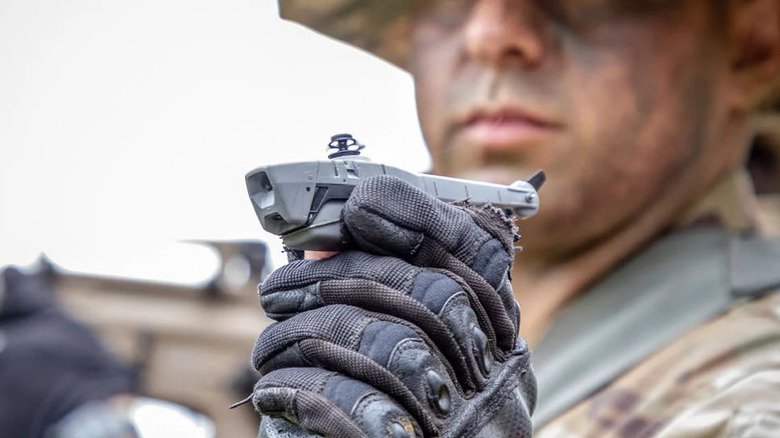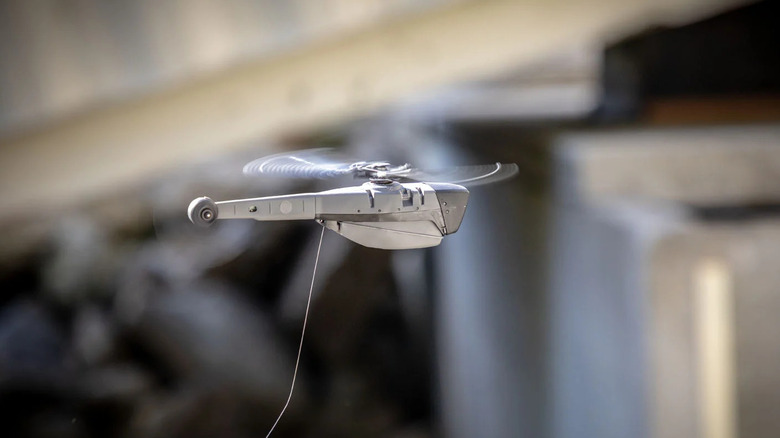Fit For 007, These High-Tech Microdrones Are Headed To The Ukraine Front Line
Ukrainian soldiers will soon have a new gadget to help give them an edge over Russia. Britain, which has already supplied the country with a number of defensive devices like Javelin anti-tank missiles and cutting-edge Starstreak anti-aircraft missiles, is sending something far less lethal but still vital. Ukraine will be getting a delivery of microdrones, which are tiny flying devices that can be used to scout enemy positions and give the defending forces a better picture of the battlefield.
The 6-inch-long drones are capable of getting close to Russian forces without being detected and can even be used to scout out buildings. Ukraine's new drones can travel up to 1.2 miles from their operators, hit speeds of 11 mph, and they have a 25-minute battery life. The drones even pack built-in night vision. On its website, the company that makes the Black Hornet, Prox Dynamics, highlights how the drones can save soldiers' lives on the battlefield and civilian lives, too, saying, "The remotely-controlled drone has been designed with an aim to save the lives of front-line soldiers. In addition to its combat role, the PD-100 Black Hornet can also be used for search and rescue operations in calamity-stricken areas to save civilians."
The Telegraph reports that 850 of the tiny drones will make their way to Ukraine as part of a £54 million ($64 million) supply scheme. The drones account for around £8.5 million ($10 million) in total and are supplied in a joint effort with Norway, which produces them.
There has been a heavy international response
Russia has faced international condemnation and backlash since it chose to invade Ukraine in February 2022. In response to the invasion, several major countries, including the United States, most of the European Union, and Turkey, imposed strict sanctions on Russia while providing billions of dollars' worth of assistance to Ukraine. Russia has struck back by limiting its oil and gas exports to Europe. Several E.U. nations, including Germany and Finland, have become heavily reliant on Russian fuel in recent years and are set to face a tough winter. Some creative solutions have been proposed, including gigantic sand batteries that can store energy generated by seasonal energy sources like solar panels and use it to heat people's homes months later.
It isn't just nations that have chosen a side in the conflict. Several major companies, including prominent names in the tech industry, have scaled down or ended their operations in Russia over the last few months. Google has suspended its advertising services in Russia, Apple has stopped selling its products there, and even the popular phone-based game Pokemon Go has gone dark within the territory. Some companies, like Elon Musk's Starlink, have provided direct assistance to Ukraine's government and military. Musk has sent truckloads of Starlink terminals to Ukraine in an effort to keep communication lines open even if the conflict destroys infrastructure. Starlink, which is a satellite-based internet service, does not currently operate in Russia.

